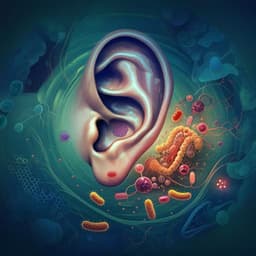
Engineering and Technology
Low energy carbon capture via electrochemically induced pH swing with electrochemical rebalancing
S. Jin, M. Wu, et al.
This groundbreaking paper showcases a carbon capture system using pH swing cycles driven by DSPZ molecules' proton-coupled electron transfer. The innovative electrochemical process not only captures CO2 but also rebalances the system to extend cell lifetime, promising a significant step forward in carbon reduction strategies. This research was conducted by Shijian Jin, Min Wu, Yan Jing, Roy G. Gordon, and Michael J. Aziz.
Playback language: English
Related Publications
Explore these studies to deepen your understanding of the subject.







